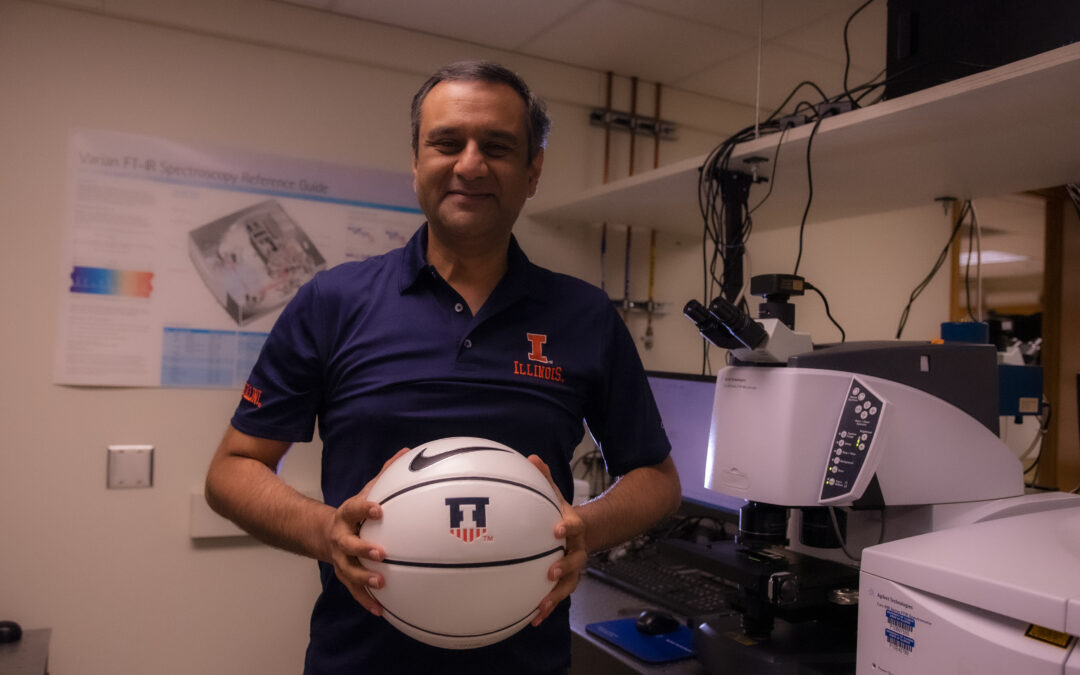Image of Rohit Bhargava.
Urbana, Ill. – The Fighting Illini are also fighting cancer by supporting and promoting awareness of the Cancer Center at Illinois, a research unit and a community of experts in cancer biology and technology that seeks to address gaps in cancer research and healthcare, including diversity and equity issues.
The CCIL pursues many goals, including the improved understanding of cancer using new technologies to improve diagnostics / detection of cancers and understanding of biological processes to improve and accelerate the development of cancer therapies.
Rohit Bhargava, CCIL Director, firmly believe that a wide variety of expertise is needed if the community is to truly address cancer in a different and better way.
“There are many outstanding researchers and institutes that focus on cancer biology, but we thought there was a gap that we could address by bringing innovative technology to the cancer world,” Bhargava said.
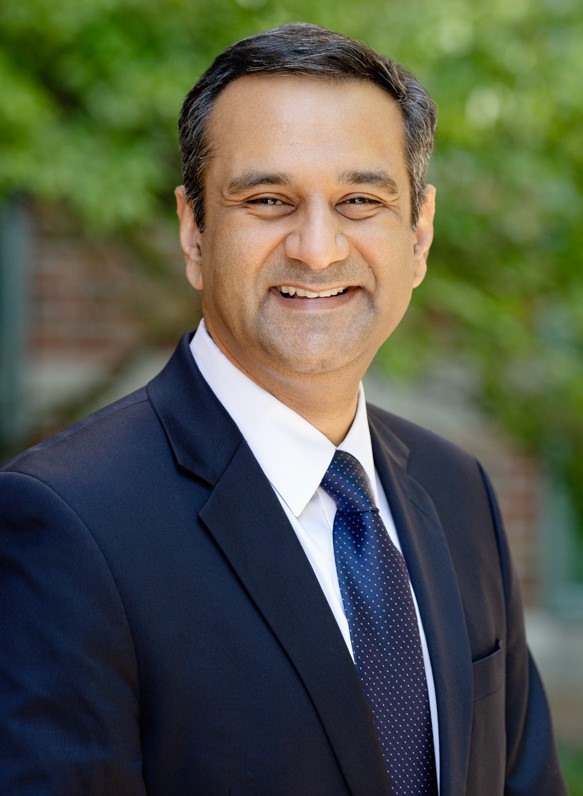
Rohit Bhargava
Such technologies include developing techniques for advanced ultrasound imaging capabilities, which make use of a low-cost and safe tool to provide accessible cancer imaging solutions for clinics in under-resourced communities. CCIL researchers such as Pengfei Song, assistant professor of electrical and computer engineering, are addressing this need.
“Advanced ultrasound imaging methods such as 3D ultrasound have demonstrated the ability for improved cancer management, but these are only available on expensive, top-tier ultrasound systems. My lab has been developing alternative solutions to enable these advanced imaging modes for cheaper mid- to low-tier systems, as well as cell-phone based systems,” Song said.
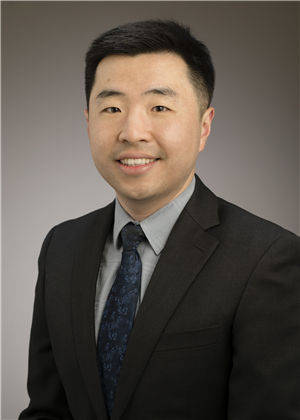
Pengfei Song
CCIL researchers are also focused on underserved populations of cancer patients who have higher risks of developing certain types of cancer. H. Rex Gaskins, CCIL associate director for education and professor of animal sciences, and Zeynep Madak-Erdogan, CCIL program leader for education and associate professor of food science and human nutrition, are researching the risk of colorectal cancer in Black men and breast cancer in Black women.
“My research focuses on why women with lower socioeconomic statuses are more likely to die from estrogen receptor positive (ER+) breast cancer. Because of this, Black women in Southside Chicago are four times more likely to die from ER+ breast cancer, so I want to better understand the biology behind these disparities,” Madak-Erdogan said.
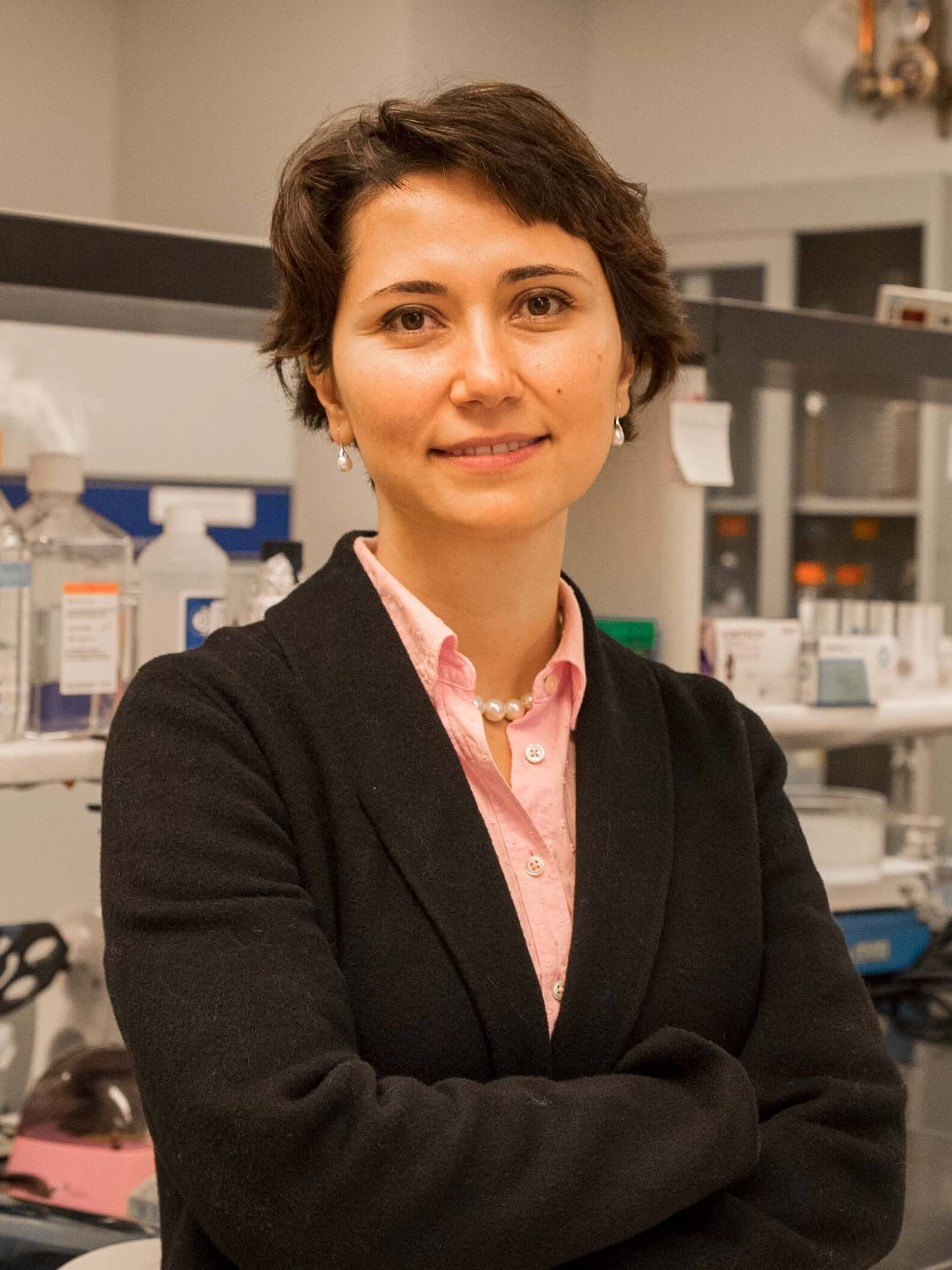
Zeynep Madak-Erdogan
To ensure continued progress in cancer research, CCIL scientists are committed to training a diverse group of students. CCIL scientists Jun Song, professor of physics, and Stephen Boppart, CCIL program leader, professor of engineering, and executive associate dean and chief diversity for Carle Illinois College of Medicine, are co-leading FUTURE-MINDS-QB, a program that offers a path for master’s students at Fisk University, a historically Black university, to a doctoral degree at the University of Illinois.
“The historic disparity of access to scientific education means that we need to provide more than equal opportunity to underrepresented groups. Our program will help equalize access to high-level mathematical and computational training, which has close interplay with and assists quantitative cancer biology in research,” Jun Song said.
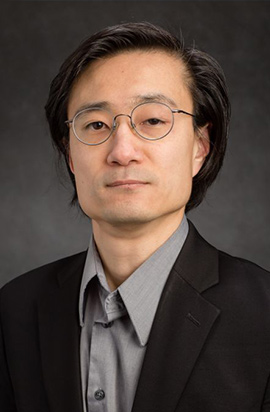
Jun Song
By channeling efforts into ensuring a culture of diversity, equity, inclusion, and engagement, the CCIL will achieve Illinois’ full potential in cancer-related efforts. This includes emphasizing the growth and health of CCIL staff and scientists and engaging with scientific and local communities.
“We are at a critical time to address how we fight cancer, and we have an opportunity where our understanding of technology and biology have advanced tremendously. However, the benefits of these advances impacting patients has not accelerated at the rate we might expect,” Bhargava said. “It takes all of us to urgently address this disease and we must scale up our solutions if we want to bring the scientific progress to cancer patients.”
At the 2022 Krush Cancer men’s basketball game (Illinois vs. Michigan State), a moment will be observed to honor and support cancer survivors and those fighting for and alongside patients. Find out more about the Cancer Center at Illinois’ research and how you can support their efforts today.
– Written by the CCIL Communications Team

